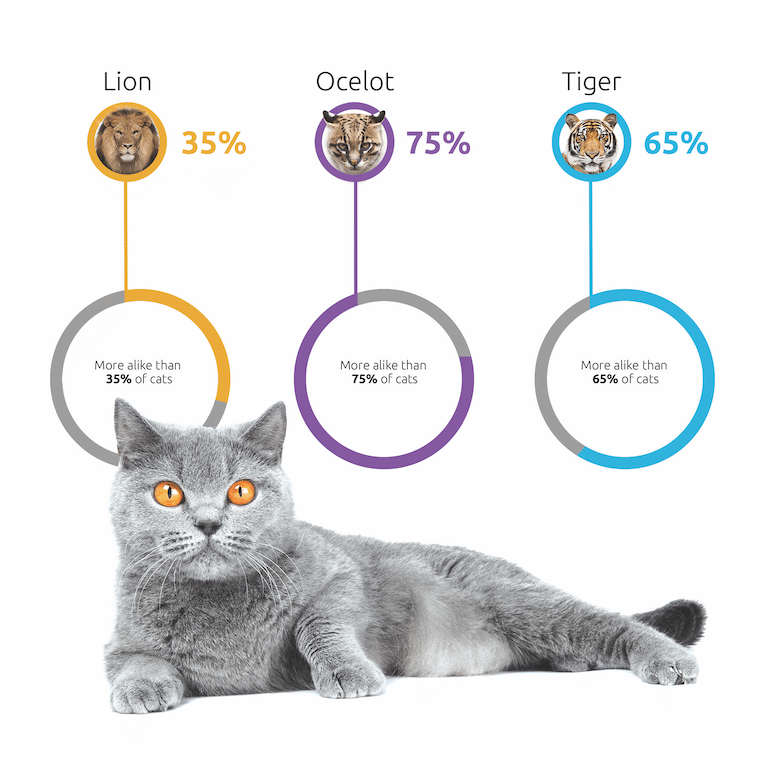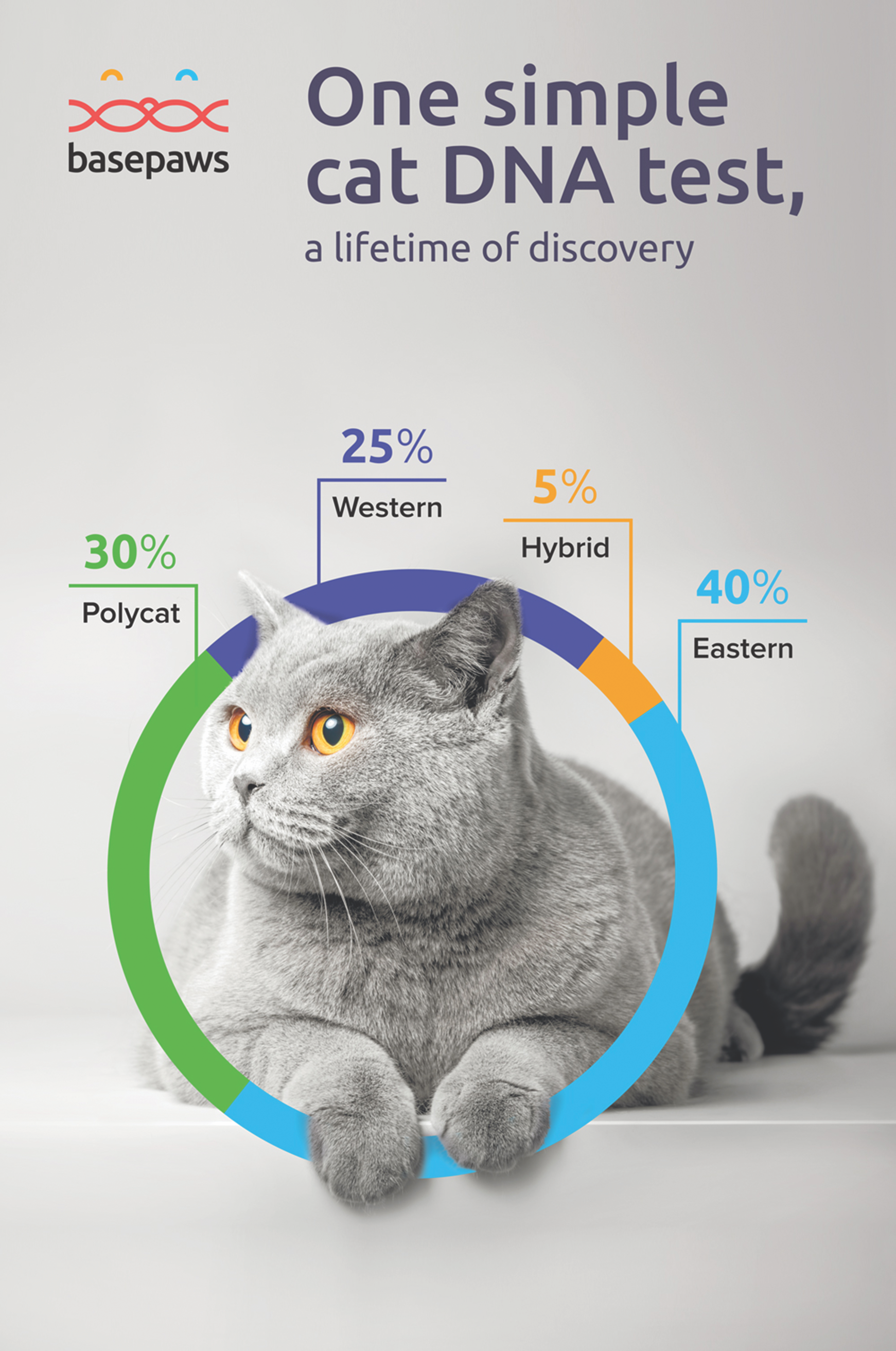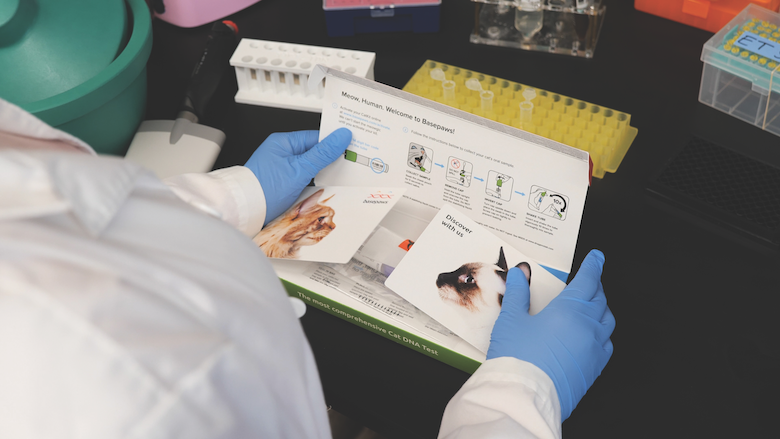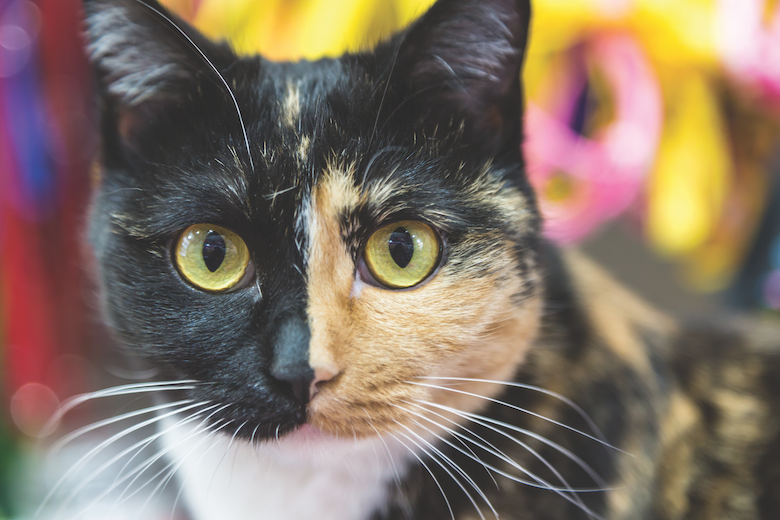What you see may not be what you get. Think you’ve got a Maine Coon? Don’t judge your cat by his cover — the lineage and health issues feline DNA tests might uncover. Dr. Claudine Sievert, a veterinarian from Kansas, thought her adopted cat, Pretzel, was a domestic shorthair. But a cat DNA test kit she used revealed quite a surprise.
Her gentle, soft-voiced cat is genetically closest to Persian. “I was shocked because Pretzel does not look like a Persian,” Dr. Sievert says. “His face isn’t that short, his nose isn’t that tiny and his fur is short! I read the report once more to make sure I got it right.”
Cat DNA test kits
Cat DNA testing is booming, and the actual test process is like dog DNA tests. For about $40 to $125, you order a kit online, swab the inside of your cat’s cheek, send the swab to the company and get the results. But cat DNA test results are a bit different than what you get for dogs, which usually pinpoint breeds. In some cases, cat DNA tests will identify a breed, but most trace the cat’s lineage back to a certain area and shared common ancestry.
“Some companies will say your cat is Persian and Siamese, and that may be true,” says Robert A. Grahn, PhD, a geneticist with the Veterinary Genetics Laboratory at the University of California at Davis. “Or it may be that your cat is from the same region that gave rise to the Persian and Siamese.”
Why the difference in results? Experts say the dog gene pool is more distinct. “Dogs have been bred for thousands of years for specific jobs,” says Dr. Amanda Perkins, a veterinarian who runs a cat hospital in Louisiana. “Specific breeds have specific DNA markers, and tests pick up on the breeds pretty easily.” But the cat gene pool can be diverse.
“Cats have different looks and personalities, but their DNA is really pretty similar,” Dr. Perkins says. “There are parts of the world where certain breeds developed, and the DNA tests can pick up a region of origin, like a part of Africa, Asia or Northern Europe.”

Identifying health concerns
Certain cat breeds may inherit medical conditions, and some DNA tests flag these genetic markers.
“Persians and Himalayans are prone to polycystic kidney disease, and that gene has been specifically studied. There is a reliable DNA test,” Dr. Perkins says. “There’s also a gene for heart disease in Maine Coon cats that DNA tests might be able to find.”
Knowing genetic predispositions can be valuable. “I absolutely feel that any information you have benefits you,” Dr. Grahn says. “For example, there’s a known genetic mutation for a bleeding disorder in many breeds. If your cat has to have surgery and has this mutation, your vet needs to know.”

Kits on the market
There are many test kits now available. Basepaws CEO and founder, Anna Skaya, says she started the company after taking a 23andMe test. Being a cat person, she wondered about feline testing.
“Cats were understudied,” Anna says. “We’re catching up.”
Basepaws says it can estimate your cat’s origins to more than 17 breed types and four regions. “It may say you’ve got a mixed breed cat, but it’s closer to a Maine Coon than any other breed. It does not mean its mom was a purebred; it just means the genetics are closer to any other breed.”
Basepaws’ reports also identify genetic markers. As the company discovers new genes, they’ll notify you if they find future concerns in your cat’s DNA.
“We call it a living document,” Anna says. “We’ll send special emails to cat owners or have our vet call if it’s serious.”
UC Davis offers more than two dozen specialized cat DNA genetic tests. “We do everything from ancestry to diseases, coat color traits, coat type, pretty much anything that’s out there, we offer,” Dr. Grahn says.
Orivet offers multiple genetic screening tests the company says are designed for all cat enthusiasts, but breeders tend to be the main users. Vets also use them to look for markers.
The Optimal Selection Feline Genetic Breeding Analysis by Wisdom Health is also geared toward owners and breeders of pedigreed cats to screen for genetic disorders. “Breeders have a crucial role in improving the genetic health of pedigreed cats and kittens,” says Heidi Anderson, PhD, senior research and development manager for Genoscoper Laboratories, a division of Wisdom Health.

Photo: GlobalP | Getty Image
Is testing worth it?
The animal DNA testing world is unregulated, but for about $100, you can unlock some mysteries about your cat.
“I don’t think everyone needs to run out and test for genetic diseases, but if they get that information, it’s a wonderful thing to have,” Dr. Grahn says.
Dr. Sievert says Pretzel’s Persian lineage could explain his kidney disease. She would never have known so much by just looking at him.
“Numerous research has shown that visual breed identification is inaccurate,” she says. “What you see is almost always not what you get. Now I advise all my clients, friends and relatives to DNA test their pets. This can save your pet’s health and money in the future.”

Photo: dra_schwartz | Getty Images
Future of DNA Testing
What’s the future of cat DNA testing? Some experts predict vets testing a cat’s entire genome to assist medical diagnoses.
“If you sequence your cat’s entire genome,” Dr. Grahn says, “you have access to every genetic problem your cat has.”
Dr. Grahn believes the price for sequencing will decrease and testing will increase. “If a cat is sick because it has a metabolic issue, you can look at the associated genes and say, “Oh, look here’s a mutation.’ Then you’d know exactly what you’re trying to solve,” he says.
